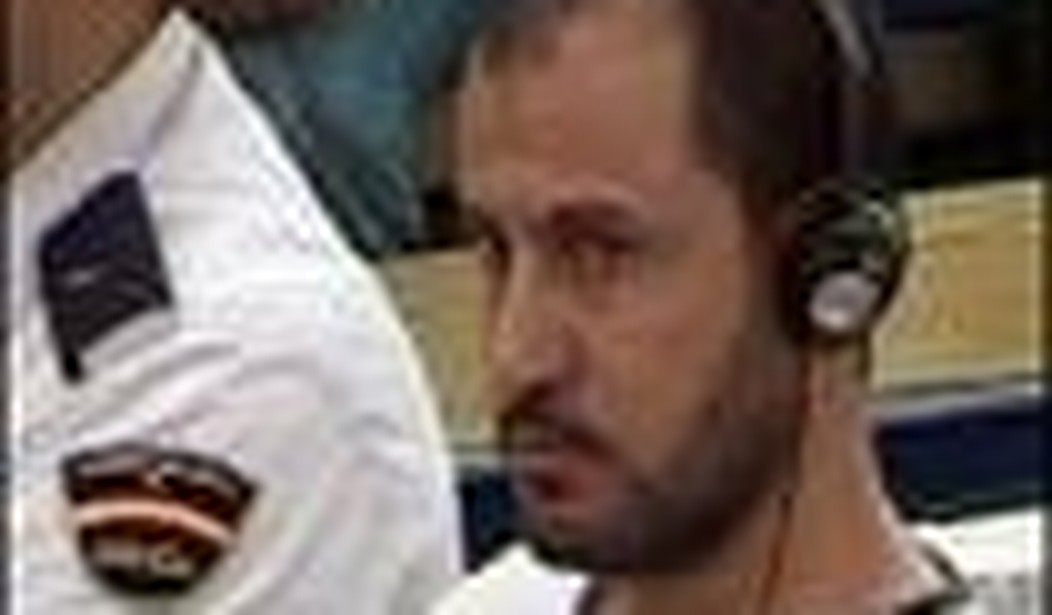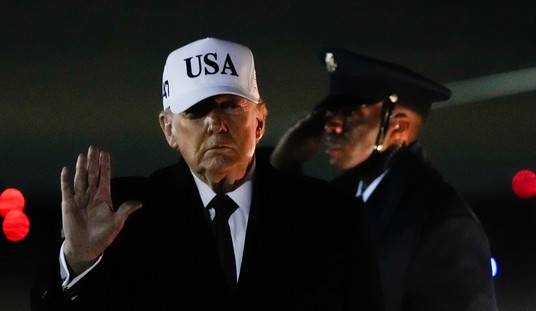Apart from the satisfaction of seeing 21 truly deserving individuals spend the next 120,755 cumulative (though symbolic) years behind bars, Wednesday’s public reading of the verdict in the Madrid train bombings trial left observers with a feeling that something less than justice had been done in the upshot to the 57 days of courtroom drama that followed on a three-year investigation into Europe’s second-deadliest terrorist attack after Lockerbie.
Not even the three judges would claim that their findings encompass the whole truth of what happened on the morning of March 11, 2004, when 191 people were killed and over 1,800 maimed by bombs planted on four trains packed with commuters heading to work or school in the Spanish capital from the smokestack suburbs east of the city.
Key questions such as the type of explosives that was used to carry out the attacks or the vehicle used by the terrorists to get to the station where they boarded the trains, were impossible to answer with “absolute certainty”, admitted Judge Javier G√≥mez B√©rmudez, who added that the gaps were “judicially neutral” and did not invalidate the evidence or the conclusions extracted from it.
Most of the convictions, though, were on second-tier charges ranging from membership in an armed group to driving with false license plates. These added up to 120,755 years shared out among 13 Moroccans, five Spaniards (counting a Syrian-born suspect holding Spanish nationality) and one apiece from Lebanon, Algeria and Syria, respectively. Seven defendants from Spain, Egypt and Morocco were acquitted, and one more had charges against him dropped while the court was still in session.
It appears the tribunal had no alternative but to acquit on many of the big-ticket charges because neither the evidence nor the witnesses introduced by State Prosecutor Olga S√°nchez could meet the degree of certainty the law requires for convictions on felony offenses such as organizing and coordinating a terrorist attack.
In a stinging rebuff to the prosecution, the judges made it clear that the organizer, instigator, Mr. Big, the figure known in Spanish jurisprudence as the autor intelectual of the crime, could not be established. Why is this such a big deal? Because the law says there has to be one. A case is not closed until the courts have determined the person or persons vested with ultimate responsibility for the crime’s commission, as opposed to a mere perpetrator, or autor material.
The prosecution had three suspects fingered for the role of massacre mastermind. Two of them, Hassan El Haski and Yussef Belhadj, were each facing 38,952 nominal years in jail but instead were convicted for “membership in an armed gang or terrorist organization” and will do the statutory 12 years, plus assorted minor charges.
The third and principal candidate for “inducing others to commit 191 counts of murder and 1,841 counts of attempted murder by an act of terrorism,” Rabei Osman El Sayed Ahmed, alias “Mohammed the Egyptian,” was absolved on all charges, including “membership.” Allegations against him hinged on a phone call intercepted in Italy in which he boasted about M-11 being his doing. On the stand, though, he came across as incapable of planning so much as a convenience store heist and more like an inept loudmouth, and the judges apparently thought so, too. Osman is currently serving an eight-year sentence in Italy, where he was convicted of being an “influential” Al Qaeda leader, and the Spanish tribunal stated they could not see their way to convicting him all over again on the same charges.
Abdelmajed Bouchar and Jamal Zougam were the only defendants accused of being among the group that actually planted the bombs. Bouchar was convicted for membership, arms possession and lesser offenses that will put him away for 18 years, but Zougam will “do” the maximum time, just over 42,000 years, as convicted perpetrator. It remains to be seen if he gets off on appeal, since witnesses did not identify him as having been at the scene of the crime until after his picture was in all the papers.
Four out of the nine Spanish-born defendants were convicted. All belonged to a ring of explosives traffickers headed by coal miner turned crook José Emilio Suárez Trashorras, whose 34,715-year sentence validates the contention that that he not only supplied the dynamite used to commit mass murder in a cash-and-hash exchange deal, but that he did so knowing what it was going to be used for.
The last of the five-digit sentences went to Otmar El Gnaoui, who was convicted of being a “necessary accessory” to multiple counts of murder and attempted murder for having transported the dynamite supplied by the Trashorras from northern Spain to Madrid. His term topped out at 42,944 years.
In the real world, this means the bigger fish will be put away for up to 40 years under the 2003 penal code reform that finally eliminated the automatic rebates that put smirking Basque ETA terrorists back on the street. Some lesser fry will be out and about in a matter of months, after being credited with their three years in preventative detention.
But “big” is meaningful only in the context of this trial. None of the defendants seemed to be, shall we say, mastermind material, and if any one of them possessed the charisma or leadership skills that would persuade others to embrace murder and martyrdom, they were expertly downplayed in court. Any attempt to determine ultimate responsibilities must perforce be extended to the 11 other individuals named in the 118,000-page sumario that resulted from investigating magistrate Juan del Olmo’s three-year long probe. Unfortunately, though, most and possibly all of them are dead.
Two have disappeared and two more who fled Spain are believed to have died in Iraq. The remaining seven all blew themselves up when their safe house in the Madrid suburb of Leganés was surrounded by Special Ops police a few weeks after the bombings. Bouchar was staying with them but was spared self-immolation because he had gone to take out the garbage when police closed in. A surfeit of DNA and other evidence strongly indicates these seven (plus one more unidentified person) were the ones who actually planted the bombs on the trains.
The spotlight falls on Jamal Ahmidan, alias “The Chinese,” who certainly makes a more likely fit as master manipulator, or in this context, emir. Better educated than the others and more fanatical in his fundamentalism, El Chino was at least smart enough to make a good living as a middle-man for drug dealers. But it takes a lot of stretching to envision him planning and executing a complex operation of this sort.
There is also the question of authority. Cherchez l’iman has worked well enough in breaking up Islamist terror plots, but here it is difficult to discern who sold the killers on the spiritual consolations accessible to them via murder and martyrdom. The prosecution had Sarhane Ben Abdelmajid, aka “The Tunisian” tapped for the sky pilot role, which they saw fit to characterize under the more politically correct designation of “chief ideologue”. Still, testimony suggests that even his fellow jihadists considered Sarhane, another of the Legan√©s suicides, a religious crank more obsessed with than dedicated to God’s cause.
It is, however, perfectly clear that several members of the Legan√©s cell were worked up over the former Spanish administration’s support for the US occupation of Iraq. All of Spain’s chattering classes were waiting to hear what the judges would have to say about this and other politically hot secondary issues that belong with the hechos probados, or proven facts of the case, a narrative reconstruction of the crime that sustains the verdict.
They didn’t say anything about Iraq. Prime Minister Jos√© Luis Rodriguez Zapatero must be feeling a bit put out that they did not endorse the premise that justifies the fact that he is running the country, namely, that the attacks were the Islamic world’s righteous retribution for the former administration’s support of the US occupation of Iraq.
The judges did not comment on the prosecutor’s explicit claims echoing the argument that allowed Zapatero’s Socialist Party to come out of nowhere to win the general elections held four days after the atrocity took place, namely, that they were set in motion by a radio message from Osama bin Laden broadcast over Al Jazeera in October 2003, calling on militants to attack Western countries that were involved in Iraq and mentioning Spain by name.
The judges skated over that part, apparently declining to rule on why the attacks took place without being able to say who gave the orders. Nor did they say whether they believed the attacks were intended to produce what former premier Jose Maria Aznar termed “an electoral inversion” or if the Popular Party’s loss of a third term in office and second absolute majority was merely collateral damage.
But Judge Gomez Bermudez will have made the government happy for having curtly dismissed the possibility that the Basque terror group ETA was in any way involved in the massacre. That is because in the days immediately following the attacks, the Socialists managed to leverage initial confusion into accusations that the incumbent administration was using ETA as a smoke screen to keep voters from realizing who had brought this catastrophe down on them by palling up with Bush and Blair.
The ETA hypothesis mutated into a conspiracy theory that kept reappearing over the past three and a half years as charges surfaced claiming that key pieces of evidence had been tampered with, falsified, made to disappear, or strayed outside the chain of custody. You know you’ve got a problem when it is the prosecutor who insists that the evidence has been “contaminated” while in police custody, but says she has no idea how it happened.
Normally, this would merit no more than a one-line entry in the ledger of human stupidity, were it not for the fact that the Popular Party and Spain’s only opposition newspaper of consequence, El Mundo, let themselves be suckered into flirting with, if not actually embracing the idea of a government cover-up. Both now have probably learned, to their regret, that just as with a sexually transmitted disease, if you fool around with a conspiracy theory, it doesn’t make much difference whether you go all the way or not.
Robert Latona is a Madrid-based US journalist based who has written on Spanish politics, culture and the arts scene for print and web venues.









Join the conversation as a VIP Member